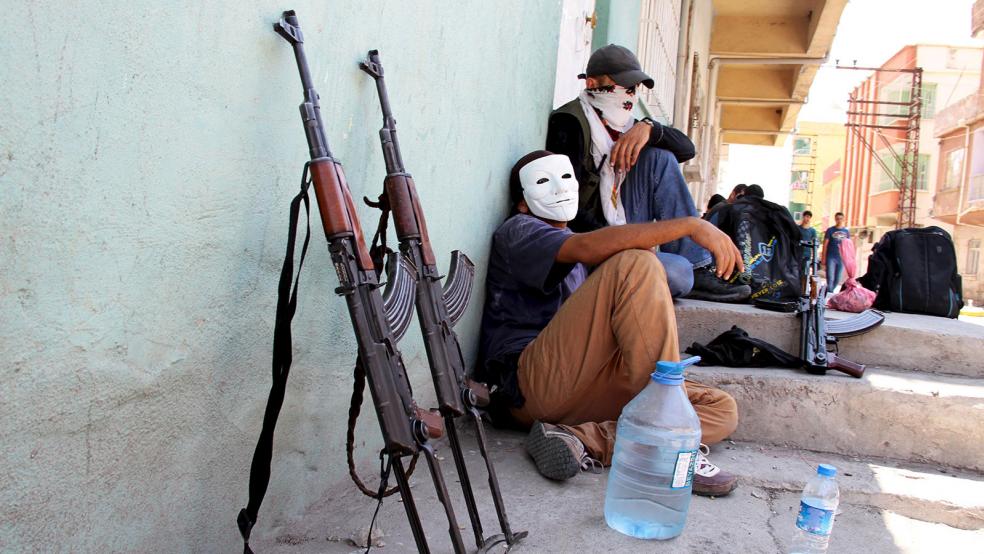The arrangement between Turkey and the U.S. to conduct airstrikes against ISIS has yet to pay much in the way of dividends.
The agreement, rolled out at the beginning of August, was lauded by both Washington and Ankara, with the Air Force creating a public relations splash around the arrival of six F-16 fighter jets at Incirlik Air Base.
Related: As U.S. Fighter Jets Arrive in Turkey, Can Air Power Turn the Tide Against ISIS?
But since then, the number of airstrikes against Islamic State targets in Iraq and Syria hasn’t increased as much as many observers expected.
Between July 30 and August 11, 293 airstrikes were carried out by U.S.-led coalition forces, according to official tallies. Between August 12 and August 24 that number rose to 304. This table from Micah Zenko at the Council on Foreign Relations summarizes the data:

The lack of results can be attributed in part to ongoing negotiations between the U.S. and Turkey to sort out the nitty-gritty details of an “air tasking order” that puts any of Turkey’s air missions against the terror group under the coalition’s banner.
“It could take a few days to put these technical arrangements into place at the operational level,” Pentagon press secretary Peter Cook said earlier this week at a press briefing. “We believe that Turkey is committed to fully participating as soon as possible.”
Related: Why Even Obama Doesn’t Know If We’re Winning the War Against ISIS
The news came just a few days after Defense Secretary Ash Carter said, “we do want Turkey to do more in the fight against ISIS.”
Cook said the Pentagon’s “cooperation with the Turks, and the expansion of that cooperation, remains a work in progress at this point, and so we see this as a step forward, but we also see that there’s opportunity for Turkey and the U.S. and the rest of the coalition to further refine exactly what that cooperation looks like going forward.”
Another reason the arrangement has yet to pay off is that Turkey seems to be more interested in fighting Kurdish forces than ISIS. Ankara unleashed a large air campaign on Kurdish militants in Turkey and northern Iraq while the new military agreement with Washington was being hammered out.
Some observers believe the campaign was just a taste of things to come, especially as Turkey’s internal politics become more unstable ahead of an election this November.
Related: ISIS Fight, Iran Deal Sink Obama’s Numbers
Eric Edelman, who served as the U.S. ambassador to Turkey from 2005 to 2009, wrote in a New York Times op-ed that the cost of the military agreement “may be too high in the long run” because Turkish president Recep Tayyip Erdogan will likely continue striking Kurdish targets to increase his party’s standing in the polls.
“This strategy might help Mr. Erdogan win an election, but it is severely undermining the fight against the Islamic State,” he wrote, noting that Kurdish forces have enjoyed the most success in battling the extremist group.
If Ankara does not cease its aggression toward the Kurds, “America’s deal with Turkey will prove to be a Faustian bargain,” Edelman warned.
He argued that the administration should curb Turkey’s access to coalition intelligence and limit financial support to the country in order to force a change in its behavior.
“Getting Turkish leaders to change course will be extremely difficult, but it is imperative to pressure them if Turkey is to avoid being sucked into the vortex created by a failed Syria policy and Mr. Erdogan’s dogged quest for absolute political power,” wrote Edelman.





